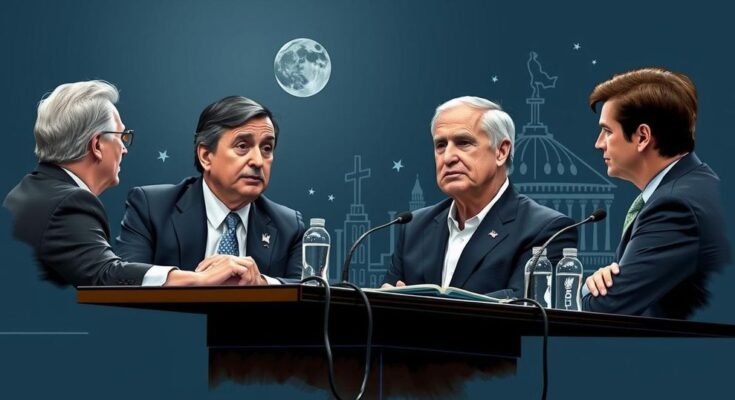With Republicans taking control in Washington, the fate of Biden’s climate law faces uncertainty. Surprisingly, many Republicans, impacted positively by the Inflation Reduction Act’s clean energy subsidies in their districts, are rallying to protect it. Significant investments flowing into GOP areas have created jobs and economic growth, prompting Republicans to diverge from Trump’s repeal agenda.
As the curtains draw on a turbulent two years, President Biden’s climate law hangs perilously in the balance with the incoming Republican majority poised to make sweeping changes. Surprisingly, not all Republicans are united against the Inflation Reduction Act (IRA). They are increasingly vocal about the need to preserve vital clean energy tax subsidies that have been beneficial to their districts, signaling a fracture within the party. Representative Buddy Carter of Georgia aptly captured this sentiment, advocating for a delicate approach: “We need to look at the IRA, and instead of taking a sledgehammer to it, take a scalpel to it.” The infusion of nearly $243 billion into clean energy, particularly in Republican districts, has sent ripples of economic growth through rural areas. A striking 80% of projects funded through the IRA have emerged in GOP regions, demonstrating how these investments are woven into the fabric of local economies. Reflecting on the impact of this legislation, Trevor Houser of Rhodium Group warned, “If that investment was to dry up, it would significantly impact the economic prospects… where most of that investment has been flowing.” Despite the looming threat of repeal from Trump and some members of Congress, many Republicans are rallying to protect these funds, recognizing their worth in revitalizing manufacturing and creating jobs across their constituents’ lives. A letter signed by 18 House Republicans underscored this urgency, cautioning that a complete repeal would squander taxpayer investments, leading to economic stagnation in areas that have begun to thrive due to clean energy initiatives. Significant projects—from Hyundai’s $7 billion EV plant in Georgia to Toyota’s $13.9 billion investment in North Carolina—stand testament to the IRA’s potential to reshape local economies. Adrian Deveny from Climate Vision succinctly stated the stakes, emphasizing that repealing the tax credits could halt construction for facilities critical to their communities. The legislation promises jobs and stability, attempting to modernize states reliant on manufacturing while espousing a vital shift towards sustainability. With the battle lines drawn, conservative advocacy groups have begun to push back against the narrative of repeal, stressing the long-term economic benefits of the clean energy tax credits. Heather Reams of Citizens for Responsible Energy Solutions highlighted the necessity of illustrating these credits as a boon for the economy, asserting that understanding their impact is crucial—”the name of the game.” In this high-stakes climate on Capitol Hill, the dialogue is shifting; Republicans, eager to protect their turf, are wrestling with the broader ideological divides within their party. The future of clean energy funding hangs on a delicate balance as lawmakers prepare to navigate the intricate web of economic, environmental, and political realities.
As climate change continues to challenge economies and environments across the globe, countries like the United States seek to bolster clean energy initiatives. President Biden’s Inflation Reduction Act, designed to foster growth in clean energy sectors and bolster manufacturing, is becoming increasingly contentious as Republicans gain control in Washington. The act aims to provide financial incentives for renewable energy projects, yet internal divisions within the Republican Party raise questions about its future viability. An analysis revealed the substantial economic impact of clean energy investments, particularly in Republican districts, challenging the narrative of uniform opposition to these initiatives among conservatives.
In summary, the future of the Inflation Reduction Act hangs by a thread as Republicans grapple with internal disagreements around clean energy funding. While Trump and his allies threaten to repeal vital components, many Republicans advocate for careful preservation of the beneficial economic projects that are revitalizing their districts. As the dynamics shift, the potential for bipartisan support emerges, indicating a nuanced and complex battle over the future of climate legislation and economic viability in the U.S.
Original Source: www.cnn.com



